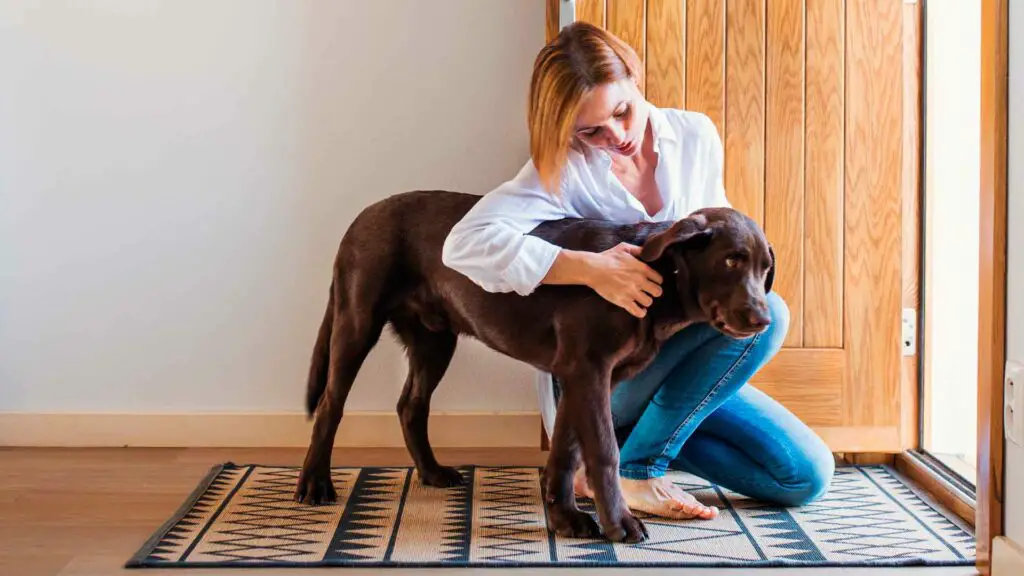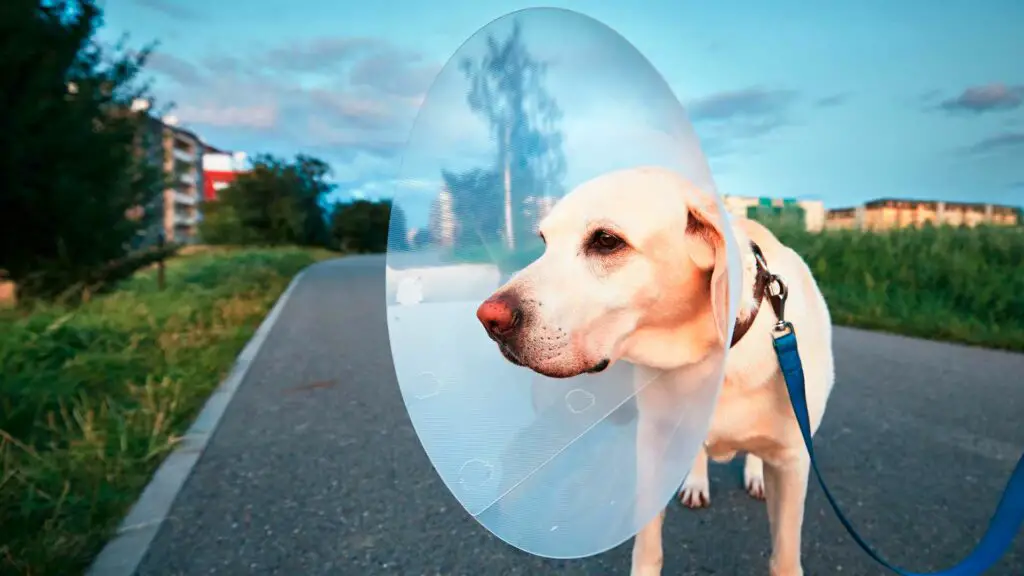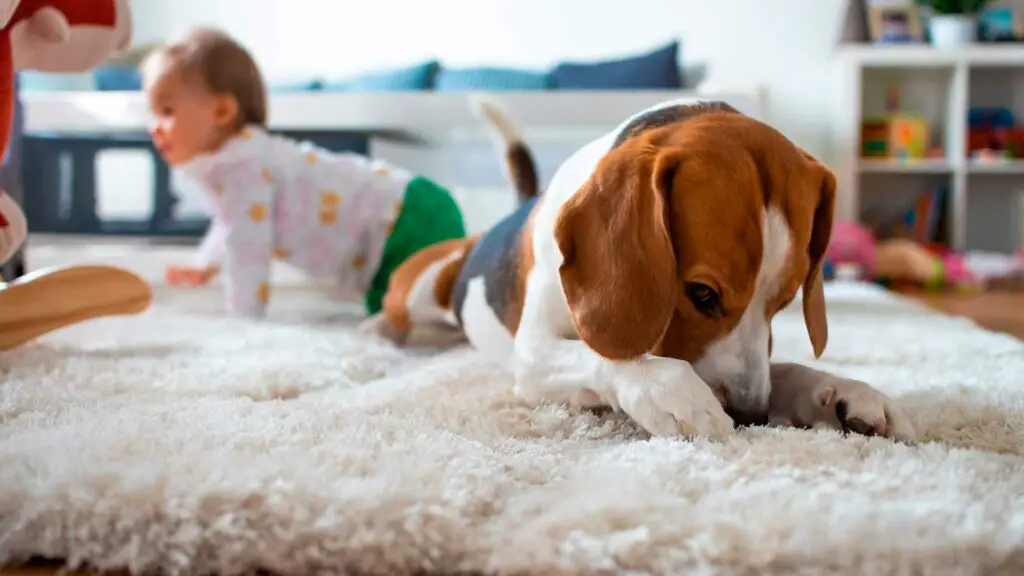Your dog might have recently developed this habit of biting or mouthing your hand, or it may have been an ongoing observation of yours. Now you want to know what is up with this and what to do about it. You have come to the right place. There are a plethora of reasons this could be happening. We will explore each, and then you will find some solutions to this issue.
Your dog is being playful
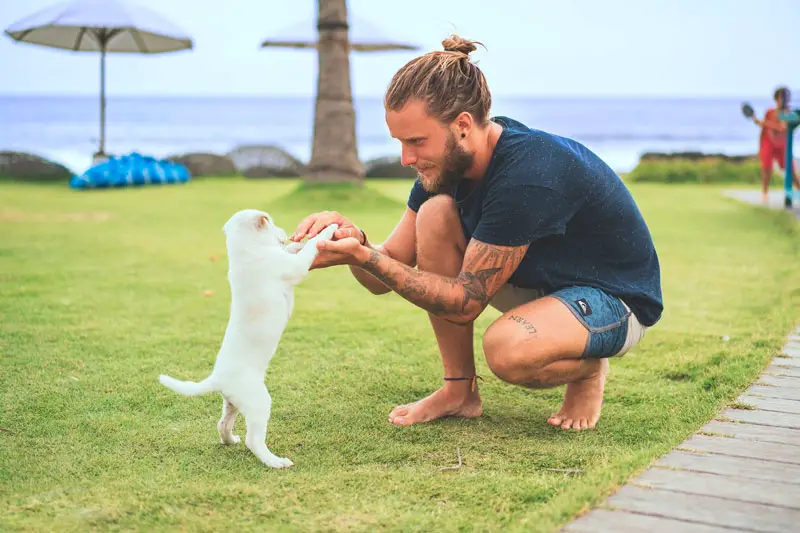
As pet owners, we love to play with our dogs. They can often be the highlight of our day. Equally, our pets love (or should love) playing with us and always want to continue playing with us. Their little worlds revolve around us. It is no wonder much of their entertainment comes from being with us.
During some of these playtime sessions, your dog may gently or not so gently nip at your hand. My cairn terrier does this every time I pass my hand over his head. It is a funny predictable trait of his when we are playing. He never bites down hard, so I have never had to make him stop. If your pet sinks his teeth in, there could be blood. There could be problems.
Your dog is seeking attention
Have you been kind of busy lately? If so, your pet will actively seek out your attention. Even if you just stopped playing with them, they will often want more. They do not always understand that not every hour is playtime and that momma or papa has to work. It could be that something of interest is happening outside, and your dog wants you to go check it out. If your dog is like mine and is extra sensitive, he may know when a disaster is about to hit.
One night my dog started going crazy. I mean crazy. He was barking and biting at my hand, desperately wanting my attention. I realized the poor thing was terrified. I could not figure it out. A minute later, I did. One of the strongest earthquakes rocked our house! I believe my dog had a sixth sense something big was coming.
I have heard of other pet owners who said their dogs warned them about fires so they could get away in time. So, keep in mind that your dog might be biting you because he knows something you do not and wants to get your attention.
Your dog was never taught it was wrong
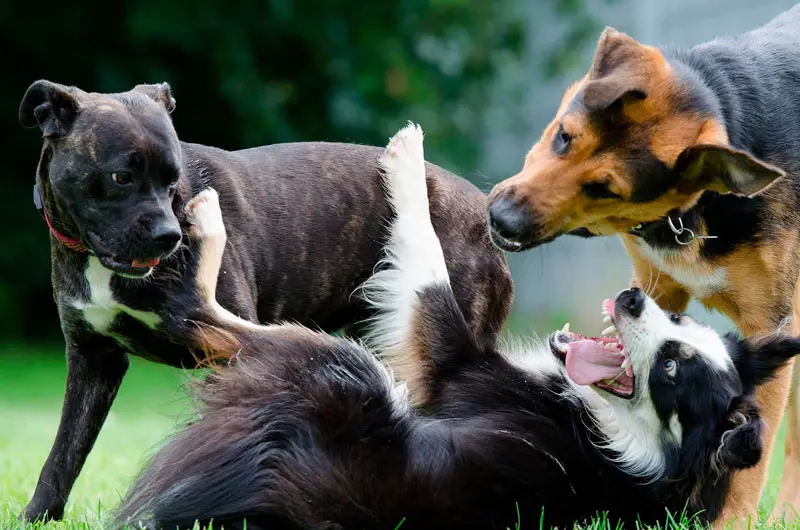
I overlook a lot of my dog’s quote-on-quote bad-behaviors. Not because I do not see how they could be problematic, but because they are not problematic for me. Sometimes he will do something, and I do not correct him because he is so adorable. I let it go on until one day a guest arrives, he nips at them, and I realize maybe I should have taught him not to do that one naughty thing or disciplined him the first time he did it.
Nip it in the bud if you will. One way our dogs usually learn is through interaction with other dogs, especially by the mother. When a puppy is playing and bites too hard, the mother usually bites back equally as hard as a way to show her pup that it needs to adjust its bite.
Other dogs, when playing, will yelp out in pain and stop playing, which teaches the offender that he has done something undesirable. Of course, we will not be able to replicate doggy behaviors, but there are things we can do to teach them.
Your dog is frustrated or afraid
Like in the earthquake situation I mentioned earlier, your dog could just be frightened by something about to happen. Or worse yet, your dog could be afraid of you.
My dog was a rescue dog and had been treated terribly by his previous owner. For a long time, he would not let me near him without growling or trying to bite me. Over time he realized all I wanted to do was love him, feed him, and take him on long walks. Once his trust was earned his fear, and biting went away. Occasionally if someone accidentally sits on his tail, he gets frustrated. A reasonable reaction, but still unacceptable.
Check if your dog is irritated by something you, another person, or another dog does, and gently try to diffuse that situation.
Learned behavior
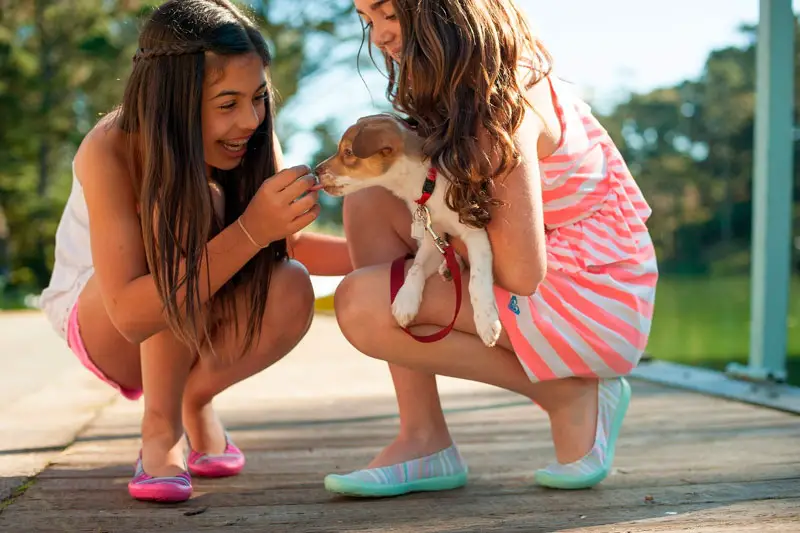
Learned behavior is a tad similar to point three but at the same time different. You or a previous owner might have taught the dog to bite in response to specific situations, and now that he is doing it in others, it needs to be unlearned.
My dog is quite the copycat. If he spends a day around another dog, he comes back with all the worrisome behaviors he witnessed. For my dog, it was going into the garbage can. He never went into the rubbish at home. One day, he had a doggy play date, and he saw the other dog going through the can, and for years now, I have to keep the rubbish in a different location than I did before; all of this from one experience.
For me, it is garbage. For you, it might be biting. Either way, now we have a problem on our hands.
Pain
I am not the sweetest person when I am in pain. Probably, neither are you, and neither is your dog.
The pain can be acute, like momentarily sitting on his tail, but if your dog is all of a sudden snappy and wants to bite the head off anyone that comes near him, he could be in severe pain.
My dog had a liver problem once. Whenever I went to pick him up or pet him in a specific area, he would yelp and bite at my hand. He was also withering away to nothing. He would not eat, and his rib cage was on show. I successfully got him into the car and to the vet for treatment. I had to start him on a few days of fasting and medication. Once the inflammation and pain started going away, he stopped biting.
Your dog is happy
Ever been so happy you did something out of character? We all do things out of character when our emotions are high. Your dog might be so excited you are back home that he jumps, scratches, and nips at you.
It is a celebration every time I get home, I tell you, even if I was just gone for a minute, to put the garbage (that my dog got into) out. He jumps and barks for joy whenever I get through that door, and sometimes he nips at my ankle or hand when I go to pet him. It is all gentle. If a friend who always brings treats comes over, my dog greets them at the door with a gentle nip. My friends are all dog lovers. They are not bothered, but it can be unwelcome by others.
Age
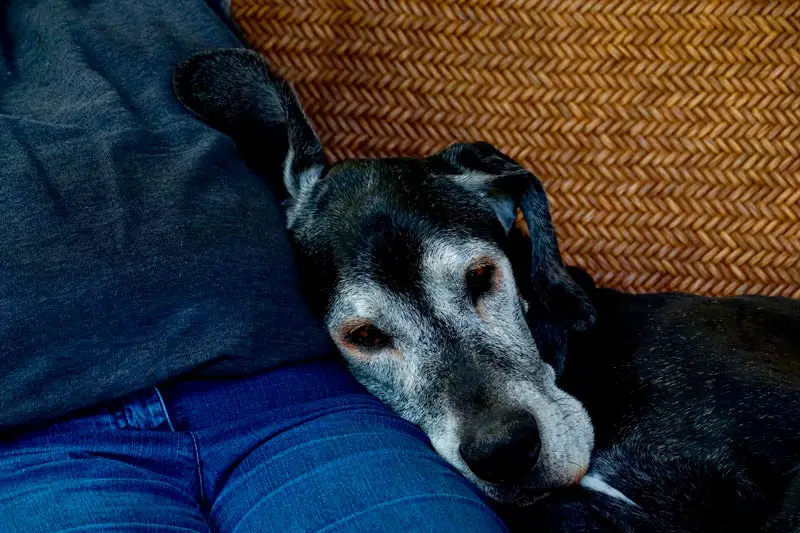
Age. I know. It is sad.
My dog is 17 this year and is losing his hearing, losing his patience, and occasionally losing control over his bodily functions. It is hard to watch, and it comes with all sorts of behavioral changes.
If your dog becomes senile, he may be forgetful or confused easily these days, and he may bite you. It is not on purpose, and there might be very little we can do except try to keep him in familiar territory and keep him comfortable.
Protective behavior/ territorial behavior
It is his spot, and he wants no one in it. Our dog never has this dominance over any one area. He did, however, protect the hell out of my husband’s gym bag. I do not know what it was about that bag, but no one was allowed near it. The more I think about it, the more I realize we have had quite the journey with our dog.
But as I said before, he was a rescue and was abused before we got him, so we did have our work cut out for us. Your dog might want to protect another person’s items that he shares a bond with. If you go near that spot, he could show some aggressive behavior.
What to do about it all
The solutions are not always easy. It will depend on your particular situation which one you choose. Some of the things you can do are listed below:
Buy a chew toy
-Give your dog something to play with so that he will give you a break and go longer without seeking out your attention.
Time out
One of the best ways to train your dog out of bad-behaviors like biting is to give him a time out. Or take time away from him. Do not punish your dog by being away for too long, but if he bites you hard, you need to yelp out in pain like another dog would and then stop playtime immediately so that he realizes he bit down too hard or that you do not desire this behavior. Keep doing this until your dog learns.
No rewards
-Do not inadvertently teach your dog this is ok by giving him a treat after he has been too rough with you. Also, attack the offensive behavior as soon as you see it. Do not be like me and allow his cuteness to cloud your judgment.
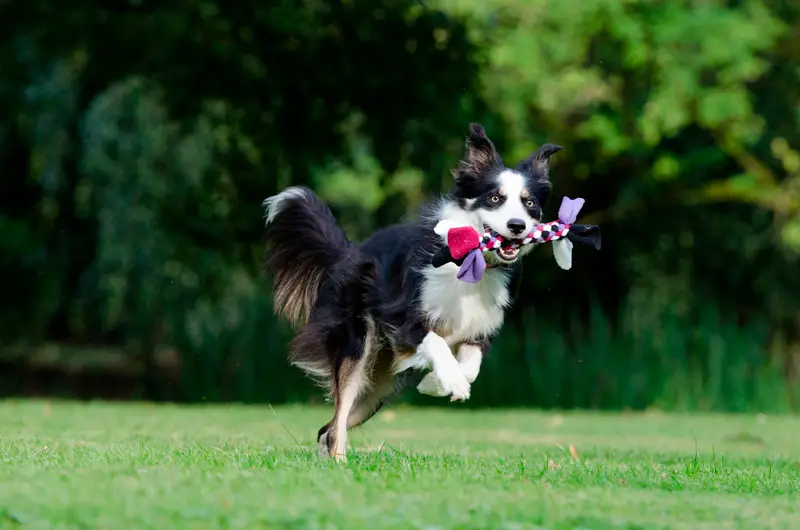
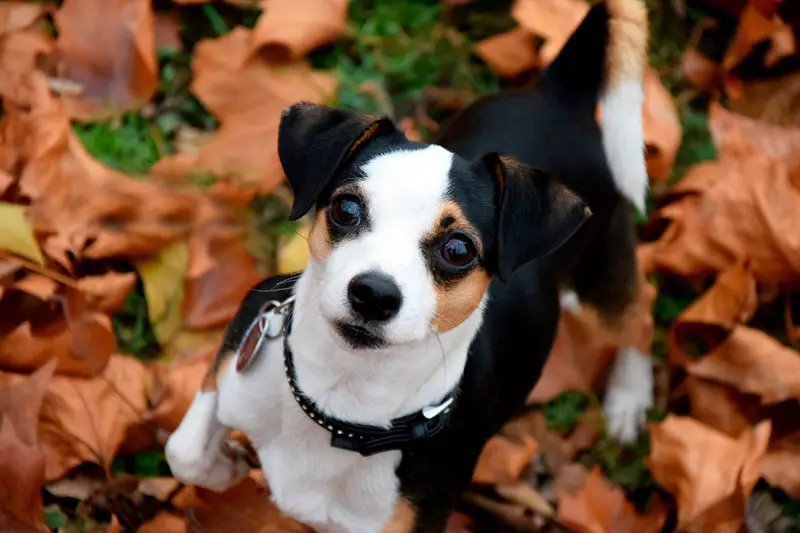
Training
-This can be something that you do if you have a wealth of knowledge. Teach your dog impulse control techniques like sit and wait, stay, and stop. Even though you are a friend, at all times, you are the master, and he should listen to you.
Our pets will try to navigate through a hierarchy and establish dominance over you if you do not do it before. They are pack animals by nature, and there has to be a leader. If you do not have the know-how, there is no shame in hiring a professional trainer.
Be sure to do your research and go to someone you trust with your dog. Also, go to someone who has the mind and heart of a teacher and is willing to show you in-depth how to do the same things he does when you are at home alone with your dog.
Be patient
If you have a rescue, as I do, you will need the patience of a saint. Being patient also includes being firm and being consistent with teaching your dog how to behave. It involves gentleness and finding different ways to earn your dog’s trust.
Doggy play dates
-If your dog gets on well with others, doggy play dates might be a good idea. The younger your dog is, the better, as your dog will pick up bite control quicker and know how much roughness to exert with other dogs and with you.
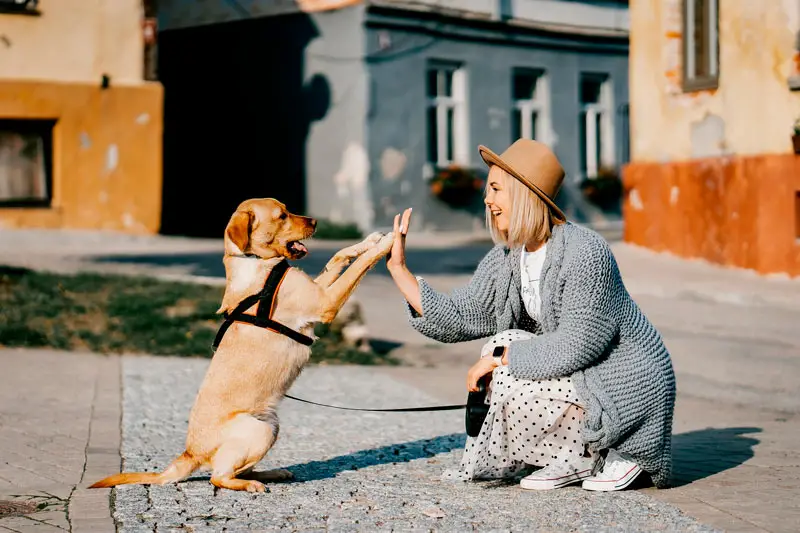
Conclusion
There are many things to consider when your dog bites at your hand or others. It would be good to read your pet’s body language to see if your pet is being playful (wagging tail, skipping around) or if they are afraid, in pain, or angry (growling, stiff posture looking ready to pounce, or trying to get away from you).
All that will guide you to the right way to address his biting and for you and your dog to feel happy and comfortable during playtime.




